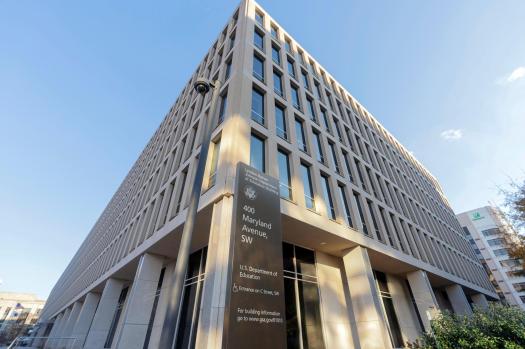Lifestyle
States and Cities Challenge Trump’s Public Service Loan Policy

More than 20 states led by Democratic officials are contesting a recent policy from the Trump administration that alters the Public Service Loan Forgiveness program. This policy restricts nonprofit and government employees from receiving student loan cancellations if their employers are deemed to have a “substantial illegal purpose.” The initiative primarily targets organizations that assist immigrants and transgender youth.
The legal challenge was filed on March 11, 2024, in Massachusetts. The states, including New York, Massachusetts, California, and Colorado, assert that the Trump administration has exceeded its authority by introducing new eligibility criteria that could worsen job shortages and disrupt state workforces. New York Attorney General Letitia James criticized the rule as “a political loyalty test disguised as a regulation,” arguing that it is “unjust and unlawful” to deny loan forgiveness to dedicated workers based on ideological grounds.
Legal Opposition Grows
A coalition comprising cities, nonprofits, and labor organizations has also filed a lawsuit in Massachusetts challenging the new rules. This group includes Boston, Chicago, Albuquerque, San Francisco, and Santa Clara, as well as the National Council of Nonprofits. They echo concerns that the policy will have detrimental effects on public service employment.
In response to the lawsuits, Nicholas Kent, Under Secretary of Education, argued that the plaintiffs are defending criminal activities. He characterized the new policy as a necessary reform, stating, “This is a commonsense reform that will stop taxpayer dollars from subsidizing organizations involved in terrorism, child trafficking, and transgender procedures that are doing irreversible harm to children.”
The recent policy, finalized on March 5, 2024, allows for the removal of employers from the loan forgiveness program if they engage in activities such as child trafficking, illegal immigration, or supporting terrorism. Notably, the term “chemical castration” is defined within this context to include hormone therapy used in gender-affirming care for transgender minors.
Impact on Public Service Workers
The Education Secretary will have the final authority to determine whether an organization’s activities are illegal, based on the “preponderance of the evidence.” The states in their lawsuit argue that this could lead to entire state governments, hospitals, schools, and nonprofits being unfairly classified as ineligible for the program. They contend that Congress intended the benefits of the Public Service Loan Forgiveness program to extend to all government workers, without the Education Department imposing additional restrictions.
Critics of the new policy assert that the phrase “substantial illegal purpose” is overly broad and vague, aimed at discouraging activities that the current administration disfavors. The lawsuit seeks a federal court ruling declaring the policy unlawful and preventing the Education Department from enforcing it.
The Public Service Loan Forgiveness program was established by Congress in 2007 to encourage graduates to pursue careers in lower-paying public sector roles. It promises to forgive federal student loans after ten years of qualifying payments while working in government or many nonprofit positions. Over one million Americans, including teachers, firefighters, nurses, and public defenders, have benefited from this program.
Another lawsuit challenging the new policy is anticipated to be filed by the Robert F. Kennedy Human Rights organization, the American Immigration Council, and The Door, a legal advocacy group, represented by Student Defense and Public Citizen.
This ongoing legal battle underscores the contentious intersection of education policy and social issues as various stakeholders navigate the implications of the Trump administration’s recent changes to student loan forgiveness.
-

 Science2 weeks ago
Science2 weeks agoInterstellar Object 3I/ATLAS Emits Unique Metal Alloy, Says Scientist
-

 Politics3 weeks ago
Politics3 weeks agoAfghan Refugee Detained by ICE After Asylum Hearing in New York
-

 Business3 weeks ago
Business3 weeks agoIconic Sand Dollar Social Club Listed for $3 Million in Folly Beach
-

 Health3 weeks ago
Health3 weeks agoPeptilogics Secures $78 Million to Combat Prosthetic Joint Infections
-

 Science3 weeks ago
Science3 weeks agoResearchers Achieve Fastest Genome Sequencing in Under Four Hours
-

 Lifestyle3 weeks ago
Lifestyle3 weeks agoJump for Good: San Clemente Pier Fundraiser Allows Legal Leaps
-

 Health3 weeks ago
Health3 weeks agoResearcher Uncovers Zika Virus Pathway to Placenta Using Nanotubes
-

 World3 weeks ago
World3 weeks agoUS Passport Ranks Drop Out of Top 10 for First Time Ever
-

 Top Stories2 weeks ago
Top Stories2 weeks agoChicago Symphony Orchestra Dazzles with Berlioz Under Mäkelä
-

 Business3 weeks ago
Business3 weeks agoSan Jose High-Rise Faces Foreclosure Over $182.5 Million Loan
-

 Entertainment3 weeks ago
Entertainment3 weeks agoJennifer Lopez Addresses A-Rod Split in Candid Interview
-

 World3 weeks ago
World3 weeks agoRegional Pilots’ Salaries Surge to Six Figures in 2025









